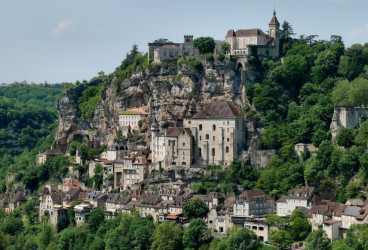Ramadan is one of the most significant and sacred events for Muslims. It is a time for fasting, prayer and spending time with family and friends. It’s also a time when Saudis from different backgrounds come together to celebrate. In Saudi Arabia, Ramadan starts early in June and ends in late July or early August. During the holy month, most businesses close and non-Muslims are prohibited from entering public spaces such as airports, markets, hotels and shopping malls. Observing Ramadan in Saudi Arabia is an entirely different feeling. So, let’s see the history and significance of the holy month of Ramadan and how it is observed in Saudi Arabia.
History and Significance of the Holy Month:
Ramadan is the ninth month of the Islamic calendar, and it marks a period of fasting for Muslims. The word Ramadan comes from the Arabic root "ramada," which means "heaps." The month of Ramadan is observed by Muslims around the world, and it begins at sunset on the first day and ends at sunset on the night of the 29th. During this time, Muslims are required to abstain from eating, drinking, smoking, and having sex between sunrise and sunset. Many Muslims also spend additional time in prayer during Ramadan.
The month of Ramadan is often associated with fasting due to its proximity to the Jewish holiday of Passover, but it is not considered a religious holiday by Muslims. Ramadan was established as a fast in order to commemorate Muhammad's(peace be upon him) journey to Mecca when he was forty years old, and it became a month of fasting after his death in 632 CE. The Islamic calendar is based on the lunar cycle, so Ramadan may fall near other holidays like Christmas or Eid al-Fitr if it falls near the end of the year.
Practice Associated with Observing Ramadan:
-
Eating Suhoor and Iftar:
Suhoor is the first meal of the day, which is consumed around sunrise. Traditionally, it is a time to eat a light breakfast before commencing with the rest of the day’s activities. However, many people choose to begin their day with a suhoor meal in order to “reset” their biological clock, and help them later on in the day have an easier time sleeping.
Iftar is the time when Muslims break their fast at sunset. This can be done at home or at a restaurant. While suhoor gives you a small and light meal, iftar comes at the end of the day. This is when you break your fast with a large feast usually to celebrate breaking your fast. The main food available at iftar include dates, dried fruit, nuts and honey. Some people prefer eating small amounts of this food throughout the night while others will have it all at once.
-
Giving Sadaqah and Zakat:
Sadaqah is a word that means to give. Sadaqah is a form of charity and is defined as an action of voluntary giving by which a person makes a donation to someone else. It is often used in the context of charity, especially Islamic charitable giving. In Islam, sadaqah refers to any act of giving to those in need, whether it be material or spiritual support. However, other religions have similar concepts of charity; one notable example would be the concept of "alms", which are donations of money or goods to those in need. Some people also consider volunteer work or charitable donations as forms of sadaqah, although there are significant differences between these two concepts.
Sadaqah can be divided into two types: zakat (charity) and sadaqah (voluntary donations). Zakat is obligatory on Muslims who are able to afford it, while sadaqah is voluntary. Zakat consists of two parts: 1) almsgiving, which is donating to the poor. And 2) fitrah tax, which is payment for military service. Like other forms of charity, zakat can benefit both the giver and recipient; for example, having extra money to donate will allow you to give more to those in need. Another benefit that comes from zakat is that it provides a sense of satisfaction inside the giver.
-
Offering Prayers:
During Ramadan, Muslims traditionally abstain from eating and drinking from dawn to sunset. This is a time when Muslims should focus on spiritual development and self-reflection. It is also a time to focus on practicing good deeds and positive thinking. While fasting, it is important to take time to self-reflect, pray, and give charity. In addition to praying during the day, Muslims are recommended to pray in short breaks throughout the day.
There are many different kinds of prayer during Ramadan. It is common to offer a short prayer before each meal or at other times throughout the day. It is also common to make du'a (supplication). Du'a can be done silently or aloud, and should be done in moments of need. Many people set up special rooms for this purpose as well. Additional ways to practice self-reflection include keeping a journal, meditating, and spending time outdoors.Moreover, practicing regular daily devotions such as prayer or reading a Qur'an can help one to maintain the Ramadan spirit throughout the year.
One way to keep the spirit of Ramadan alive throughout the year is by incorporating spiritual practices into your daily life. For example, you might read a daily devotional book or recite prayers. You might also get involved with a local Muslim community by attending Friday prayers or volunteering at a soup kitchen. Whatever you choose to do, make sure it's something that you enjoy doing!
-
Giving up sins during Ramadan:
When we fast, we want to distance ourselves from the things that tempt us. Fasting is supposed to remind us of our commitment and purpose in life, so it’s important not to break that connection during Ramadan. Sinful thoughts and deeds can be lurking around every corner, and they could lead you right back into temptation. If you’re not careful, you could find yourself slipping up more than once during the month. But if you stay focused on your purpose and keep those sinful thoughts far away, it should be easier to stay away from temptation altogether. If you feel like you’re getting close to breaking your fast, it’s best to take a break or put your phone away for a few hours. Just trying to focus on something else will help you get through the rest of the day without rushing back to your phone.
So it’s important for Muslims to avoid temptation during Ramadan by staying away from sinful activities such as gambling, drinking alcohol, gossiping and cheating. By doing so, you’re not only protecting yourself from committing sins but also preventing others from being negatively affected by your actions. As the Prophet Muhammad(peace be upon him) said: “The one who observes Ramadan with patience and perseverance will receive its reward without account.”
What You Should Do During Ramadan:
-
Spend Time with Family and Friends:
Ramadan is a time to spend quality time with family and friends and build stronger bonds between them. You might be tempted to go out more often to catch up with friends, but avoid this because you’ll be exhausted and irritable the next day. Instead, stay at home and invite your family over for iftar, the breaking of the fast. You can also arrange for iftar in a mosque to create a more special atmosphere.
-
Take a Spiritual Retreat:
Take a short retreat during Ramadan to refresh your spiritual faculties. If you’re in the Kingdom during the holy month, you can travel to the desert, visit a forest or even a mountain to do so. You can also visit a dhikr (remembrance) centre and learn dhikr or spend time meditating. This will help you to tap into a deeper level of your consciousness, which is a great way to connect with your spiritual side.
-
Eat Special Foods to Break the Fast:
There are special foods that you can eat to break your fast. You can eat dates, which are the best choice during Ramadan because they are a great source of water and are healthy to consume during the fasting period. You can also eat tamarind, pomegranate, sesame seeds, raisins, figs and date palms.
-
Visit the Mosques:
Visit the various places of worship and connect with the spiritual atmosphere. Many people visit mosques during the month of Ramadan to break the fast with their families. You can also visit the Al Haram for the voluntary hajj, the Prophet’s Mosque in Madina for a spiritual retreat or the Prophet’s Mosque in Medina for the Umrah. During Ramadan, you can also visit the Grand Mosque in Mecca for the Umrah, which is when it becomes the most crowded.
Don’t Travel During the Month of Ramadan:
During the holy month of Ramadan, you can’t travel to certain parts of the world as they’re considered inappropriate. This also applies to travelling within the Kingdom. Instead, stay at home, keep busy and make the most of being with your loved ones.
Ending Ramadan with Eid ul Fitr:
The end of Ramadan is a time for reflection and celebration. It is a time to reflect on the past month and to look forward to the upcoming month. It is also a time to give thanks for all that has been received during the month. Eid ul Fitr is celebrated on the last day of Ramadan. It is a time for families and friends to gather and celebrate together. The celebration begins with Eid prayers and ends with Eid ul Fitr.
Eid ul Fitr is a time for family and friends to gather together, share meals, and enjoy the company of each other. It is a time for Muslims to celebrate and enjoy their faith. It is a time to eat, drink, and spend time with family and friends. During Eid ul Fitr, Muslims are encouraged to break their fast with dates or sweets. They may also drink water or tea. Muslims are also encouraged to spend time with family and friends.
Ramadan is a time to celebrate being connected with your faith and family even more. You can also take a spiritual retreat, break your fast with special foods and visit spiritual places. In addition, don’t travel during the month of Ramadan so you can stay at home and enjoy the holy month.












{{item.get_author.first_name}} {{item.get_author.last_name}}
Level 7
5 Photos
36 Reviews
{{item.comment_txt}}
{{item_reply.get_author.first_name}} {{item_reply.get_author.last_name}}
@ {{item_reply.reply_to}}, {{item_reply.reply_txt}}